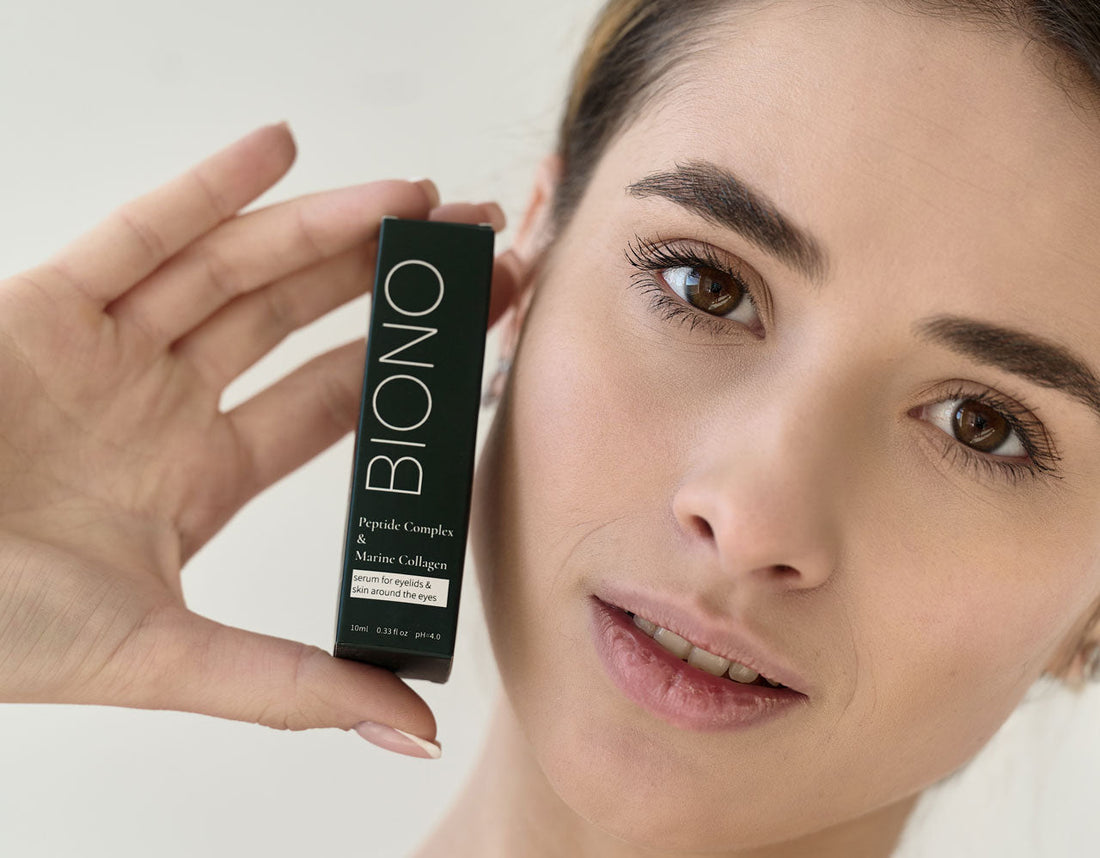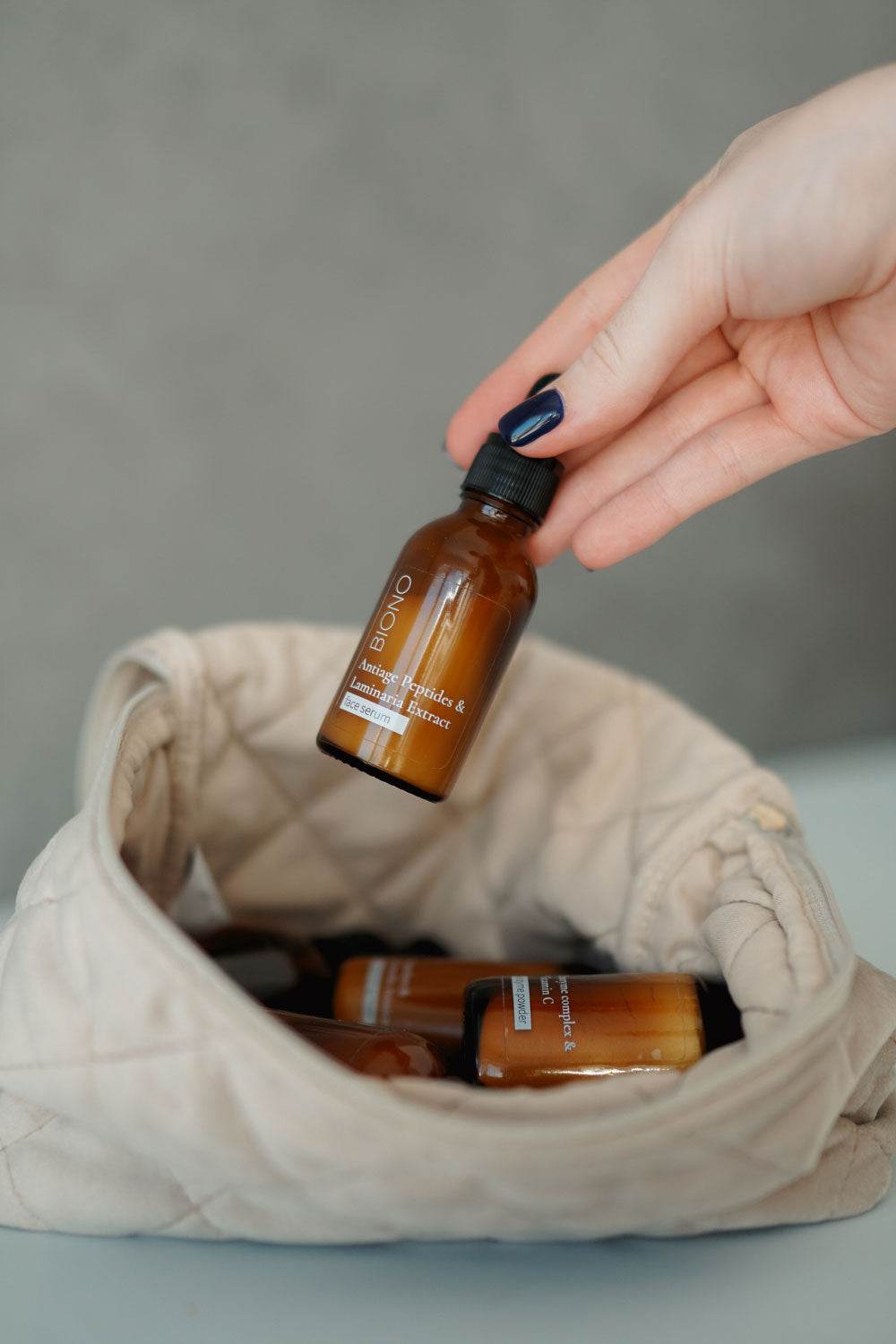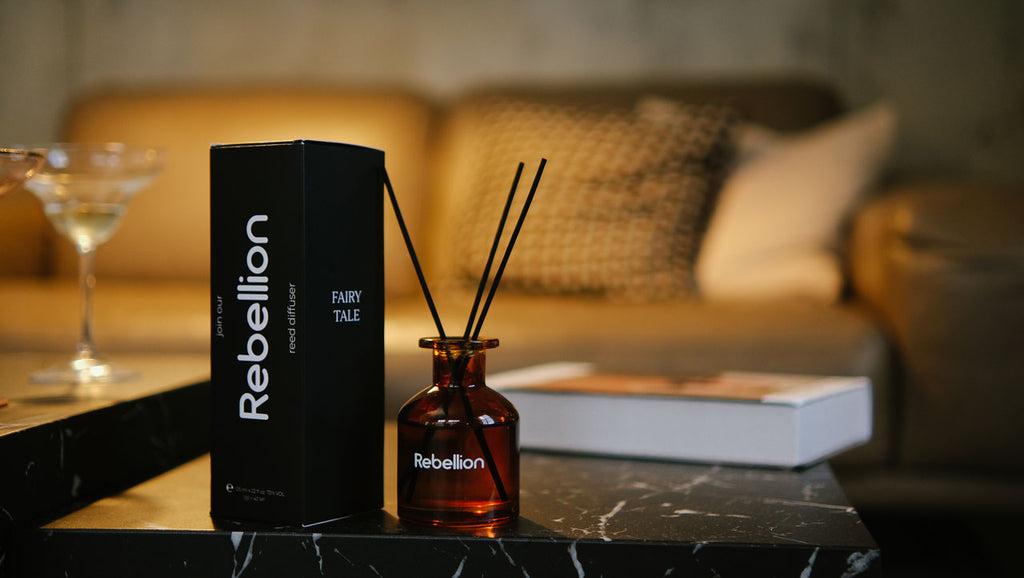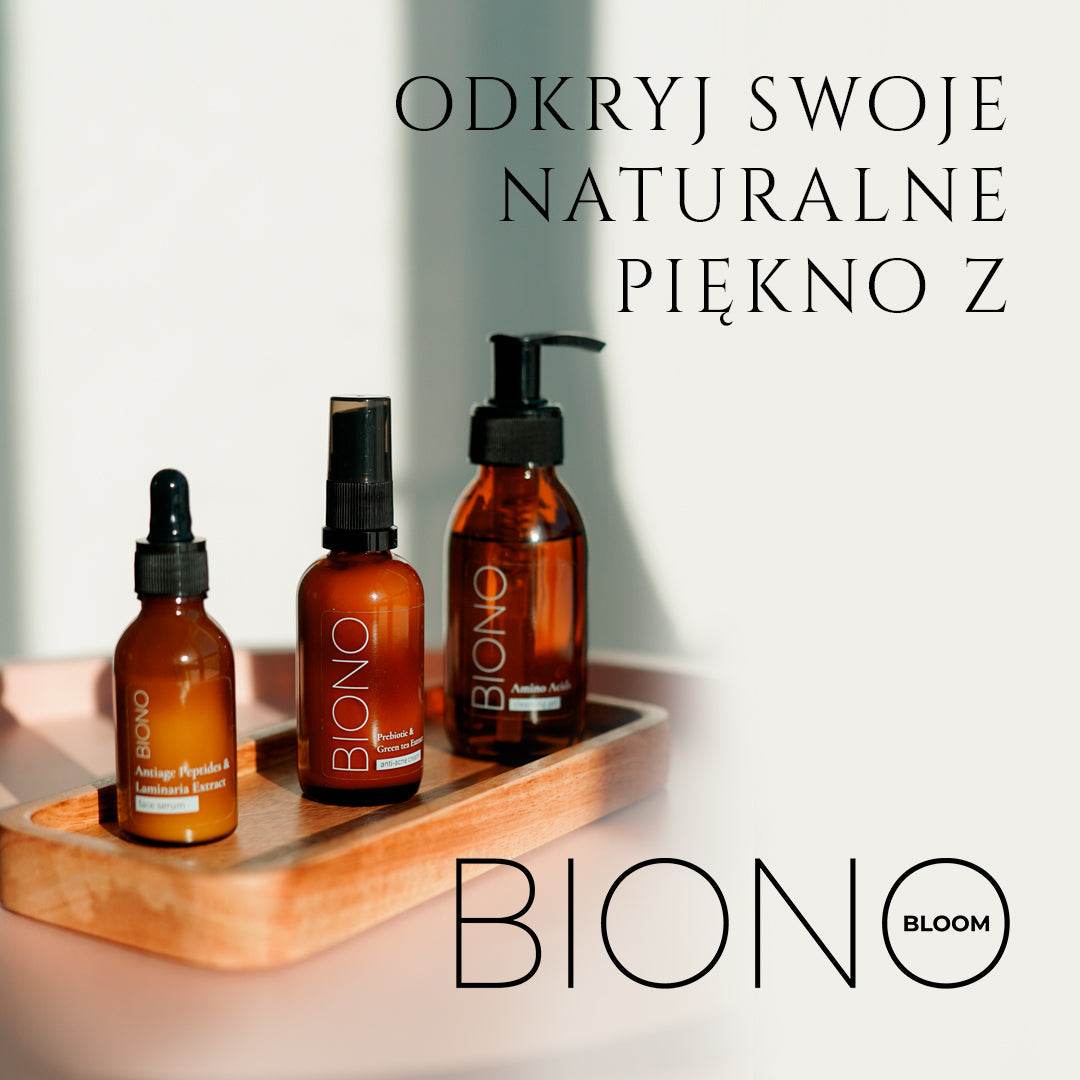
Retinol in the care of problematic skin: does it help fight acne?
Retinol has long been a star in the skincare world, especially when it comes to combating wrinkles and signs of aging. However, more and more people are wondering if it can also be effective against acne and inflammation. The answer is yes, but it's crucial to use it properly to get maximum results without irritation or excessive dryness.
In this article, we'll explain how retinol works for acne-prone skin, who should use it, and how to properly incorporate it into your skincare routine to avoid side effects.
Retinol – what is it and why is it worth using?
Retinol is one of the most commonly used forms of vitamin A in skincare products. It belongs to the retinoid group, compounds that actively affect the skin, accelerating cell renewal, regulating sebum production, and improving skin texture and tone.
This is an ingredient with a broad spectrum of action – it is perfect not only for fighting wrinkles, but also for treating acne, enlarged pores, discoloration and uneven skin texture.
By using retinol products regularly, you may notice:
✔ Fewer pimples and blackheads – retinol effectively cleanses pores, preventing them from being blocked by sebum and dead skin cells.
✔ Reducing excess sebum production – helps control skin shine, making it look more matte and fresh.
✔ Lightening of acne discolorations – accelerates the process of exfoliation of dead skin cells, making the skin more even and radiant.
✔ Soothes inflammation – has anti-inflammatory properties, reducing redness and irritation.
✔ Stimulating collagen production – not only supports acne treatment, but also prevents premature skin aging by smoothing fine lines and wrinkles.
Thanks to these properties, retinol can be a great ingredient in the care of problematic skin, but the key is its proper dosage and use.

How does retinol work on problematic skin?
Problematic skin, prone to acne, excessive oiliness, and enlarged pores, requires carefully tailored care that not only heals existing blemishes but also prevents new imperfections from forming. That's why retinol has become one of the most frequently recommended ingredients for those struggling with acne—both adolescent and adult.
Retinol, a derivative of vitamin A, is known for its anti-aging properties, regulating sebaceous glands, and improving skin texture. It works by accelerating cell turnover, meaning dead skin cells are shed more quickly and replaced by new, healthy cells more quickly. This process is crucial in acne treatment, as it helps unclog pores, reduce sebum production, and limit inflammation.
Moreover, retinol not only addresses imperfections but also improves the overall appearance and condition of the skin. It's a multifunctional ingredient that can be used not only by people with acne but also by those who want to prevent scarring, discoloration, and the first signs of aging.
Benefits of Retinol for Problem Skin
Reduces excessive sebum secretion
One of the main problems of oily and acne-prone skin is the overproduction of sebum, the skin's natural oil. Sebum plays an important protective role, but too much of it can lead to clogged pores and the formation of blackheads, pimples, and breakouts.
Retinol regulates sebaceous gland function, reducing skin oil production. This makes skin appear less shiny and significantly reduces the risk of new breakouts. Importantly, this effect isn't immediate—improvement may only be visible after several weeks of regular use.
Cleanses and tightens pores
Clogged pores are one of the main causes of acne. The accumulation of dead skin cells, sebum, and impurities leads to enlargement and the growth of bacteria, which causes inflammation.
Retinol acts as a natural exfoliant, accelerating skin exfoliation and helping unclog pores. Over time, this leads to pore tightening and reduced visibility, leaving skin looking healthier and more even-toned.
It has anti-inflammatory properties and soothes irritations.
Acne isn't just about excess sebum, but also inflammation. Red, painful pimples and lumps are the result of the body's response to growing bacteria and skin irritation.
Retinol has powerful anti-inflammatory properties, which help reduce redness and reduce the risk of new breakouts. Regular use helps calm inflammation, leaving skin looking calmer and less irritated.

Accelerates skin regeneration
Retinol stimulates cell renewal, which means skin recovers faster from inflammation and acne scars heal more effectively. This is a key benefit for those struggling with blemishes and discoloration.
With regular use, skin appears smoother, and minor imperfections become less noticeable over time. This is especially important for those struggling with uneven skin texture after a period of acne and wanting to improve their overall appearance.
Lightens discolorations and evens out skin tone
Acne often leaves behind dark spots, scars, and uneven skin tone. These are called post-inflammatory hyperpigmentation (PED), which can persist for many months.
Retinol aids in skin brightening by inhibiting the overproduction of melanin (the skin pigment responsible for discoloration). Therefore, regular use of retinol helps achieve a more even, radiant complexion.
How to properly introduce retinol into skincare?
Retinol is an active ingredient that requires caution and gradual introduction into daily skincare. Improper use can lead to irritation, dryness, and redness, so it's important to follow a few key rules.
Don't expect immediate results – retinol works long-term, gradually improving skin texture, regulating sebaceous gland function, and reducing acne. Therefore, patience and proper application are key.
1️⃣ Start with low concentration
If you've never used retinol before, choose a low concentration (0.1%–0.3%). Introduce it gradually—just once or twice a week to start—to see how your skin reacts.
Many people make the mistake of using too strong a concentration at once, which leads to redness, burning, and peeling. It's better to start gently and gradually increase the frequency of use, for example, after a few weeks, you can apply every other day.
2️⃣ Apply retinol to dry skin
After cleansing, wait a few minutes for your skin to dry completely. Wet skin can increase retinol penetration, which can lead to more irritation.
Apply a small amount of retinol to your face, neck, and décolleté, avoiding the eye and mouth areas, as these are the most sensitive areas. Then, wait a few minutes before applying moisturizer.
3️⃣ Always use SPF during the day
Retinol increases the skin's sensitivity to UV radiation, so it is essential to use an SPF 30 or SPF 50 sunscreen every morning, even if you are not going out in the sun.
Without sun protection, skin becomes more susceptible to discoloration, burns, and irritation, which can worsen its condition. Even on cloudy days, UV rays can penetrate clouds and negatively impact the skin.
4️⃣ Avoid aggressive ingredients at the beginning of the treatment
Retinol itself is a very active ingredient, so it should not be combined with other strong substances that may further irritate the skin.
In the initial phase of use, avoid AHAs (glycolic and lactic acids), BHAs (salicylic acids), and benzyl peroxide, which can exacerbate dryness and irritation. Instead, opt for soothing ingredients like niacinamide, panthenol, ceramides, and hyaluronic acid, which will help moisturize and regenerate the skin.
Only after a few weeks, when the skin gets used to retinol, can you introduce gentle acids on separate days to further support exfoliation.
5️⃣ Be patient – the first results will appear after a few weeks
Retinol does not work immediately – to see the first visible results, you need to use it for 4–6 weeks, and the best results will appear after 3–6 months of regular use.
Initially, your skin may experience retinization, a process of adapting to the new ingredient. This may result in lighter skin, dryness, and slight peeling, but this is normal and will subside after a few weeks.
It's important not to stop using retinol at the first sign of irritation. Instead, reduce the frequency of use and ensure your skin is properly hydrated. After a few weeks, your skin will begin to regenerate, and the effects will become increasingly visible.
Retinol side effects – how to deal with them?
Retinol is one of the most effective skincare ingredients, but its use can cause temporary side effects, especially in the initial phase of use. Skin needs time to adapt, which can manifest as redness, dryness, and flaking.
This doesn't mean retinol isn't for you—it's a natural response, resulting from the body's increased rate of cell renewal. It's important to properly prepare your skin and soothe any irritation, rather than avoiding it altogether.
How to minimize discomfort when using retinol?
- Hydration is key – to avoid dry skin, use a nutrient-rich moisturizer. Choose products with ceramides, panthenol, hyaluronic acid, and allantoin, which help rebuild the hydrolipid barrier.
- Soothing hydrolates and essences – spraying your face with a hydrolate, such as Damask rose or chamomile, will help soothe irritations and restore skin comfort.
- Combining retinol with niacinamide – Niacinamide is an ingredient that soothes and strengthens the skin's protective barrier. Using it in combination with retinol reduces the risk of irritation and excessive dryness.
- Gradually introduce retinol – if you experience severe redness or peeling, reduce the frequency of application. You can start by applying retinol once a week and gradually increase to 2-3 times a week.
- Don't use additional exfoliants or acids – in the initial phase of retinol use, avoid AHA/BHA acids and mechanical exfoliants, which can further irritate the skin. If your skin is irritated, it's better to focus on regeneration and hydration.
- If your skin is very sensitive, use the "sandwich" method. This involves first applying a thin layer of moisturizer, then retinol, and finally another layer of moisturizer. This makes the retinol more gentle and less irritating to the skin.
If, despite all precautions, your skin remains excessively irritated and burning, it's best to take a few days off retinol and let your skin recover before reintroducing it in smaller amounts.
When is it better to avoid retinol?
Retinol is one of the most effective skincare ingredients, but not all skin types respond well to it. In some cases, its use can do more harm than good, so it's important to know when to avoid it or use it with caution.
Not all skin is ready for the intense effects of retinol – some skin types are more susceptible to irritation, and in certain situations, its use may be contraindicated for health reasons. Before introducing it into your skincare routine, it's worth understanding possible contraindications and ensuring it's suitable for your skin.
During pregnancy and breastfeeding
If you're pregnant or breastfeeding, you should completely avoid retinol and other retinoids. This is because retinoids can enter the body and negatively impact fetal development, increasing the risk of birth defects.
Cosmetics use lower concentrations than dermatological medications, but there are no studies confirming their complete safety during this period. Therefore, dermatologists and gynecologists recommend avoiding retinol-based cosmetics during pregnancy and lactation.
If you want to take care of your skin during this period, it is worth reaching for gentler alternatives, such as:
✅ Bakuchiol – a plant-based alternative to retinol with anti-aging and smoothing properties.
✅ Niacinamide – helps fight discoloration and regulates sebum secretion.
✅ Vitamin C – brightens the skin and supports collagen production.
This allows you to take care of your skin without the risks associated with retinol.
For people with very sensitive or vascular skin
If you have sensitive, irritation-prone, or breakout-prone skin, retinol can exacerbate these issues. This ingredient accelerates exfoliation and skin renewal, which can lead to severe redness, burning, and dryness, especially in those with sensitive skin.
For skin with vascular problems, using retinol can worsen the condition of your blood vessels, resulting in broken capillaries and persistent redness. If you're prone to flushing or rosacea, retinol isn't the best choice, as it can worsen symptoms and make your skin even more reactive.
An alternative for people with sensitive skin may be milder forms of retinoids, such as:
✅ Retinal (retinaldehyde) – works faster than retinol, but is gentler on the skin.
✅ Bakuchiol – has anti-aging and antibacterial properties, but does not cause irritation.
✅ Azelaic acid – works great in the care of skin prone to vascular problems and discoloration.
If you have any doubts, it is worth testing the retinol product on a small area of skin before starting a full treatment.
In case of active inflammatory acne
Although retinol is often used to combat acne, in some cases, using it alone may not be enough. If you have inflammatory acne, meaning painful, red, and inflamed lesions, retinol may worsen your skin condition in the first few weeks of use.
In cases of severe acne, which includes purulent pustules, cysts and deep inflammation, dermatologists often recommend drug treatment first, for example:
✅ Topical or oral antibiotics – help reduce bacteria and inflammation.
✅ Azelaic acid – has antibacterial and anti-inflammatory properties.
✅ Benzoylperoxide – effectively fights the bacteria responsible for acne.
Only after the skin condition has stabilized can retinol be gradually introduced to regenerate and reduce acne scars.
If you have active inflammation, it is best to consult a dermatologist to choose the right care strategy.
Conclusion: Does retinol help fight acne?
Retinol is one of the most effective ingredients in skincare for problematic skin, helping to reduce acne, discoloration, and excess sebum. It works by regulating cell renewal processes, allowing skin to regenerate faster and leaving pores clear and less visible. Regular use of retinol makes skin smoother, more even-toned, and less prone to breakouts, but it's crucial to gradually introduce it into your skincare routine, along with proper hydration and sun protection.
Despite its numerous benefits, retinol isn't suitable for everyone – those with very sensitive skin, active inflammatory acne, or pregnant women should avoid using it. However, if you approach it consciously, gradually increasing the frequency and concentration, you may notice a noticeable improvement in skin condition, reduced inflammation, and an even skin tone. Retinol can become your ally in the fight for healthy, radiant, and clear skin – provided you use it wisely.






